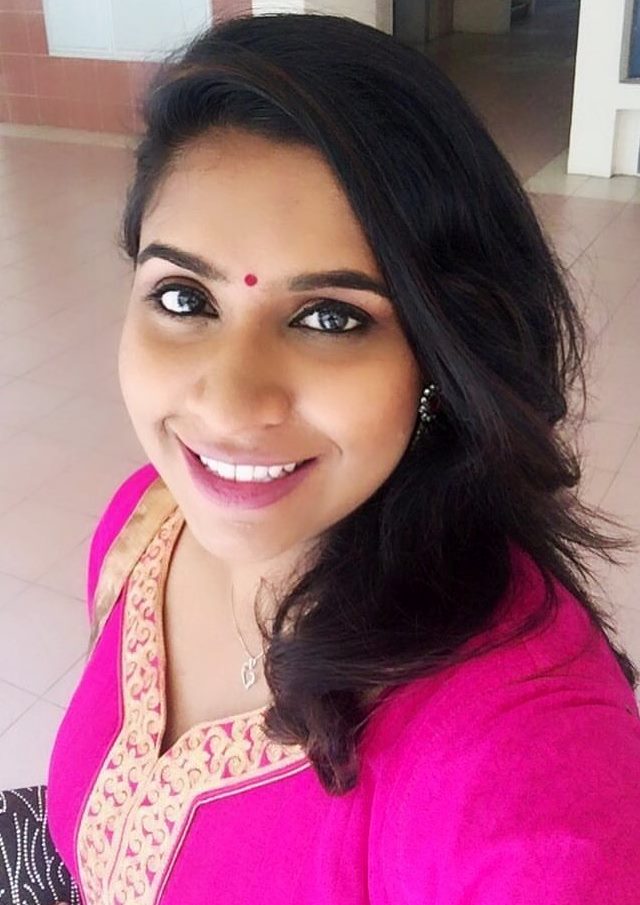Health and Human Services Student Profile
Student’s vision: “children shouldn’t have to recover from their childhood”
By Serpil Senelmis

Health and Human Services at the University of Melbourne
Ranjani Nadarajan is a Senior Research Coordinator in the field of neurodevelopmental research. The Biological Sciences graduate was motivated to further her studies and pursue the online Master of Health and Human Services at the University of Melbourne in an effort to better guide and support vulnerable children.
“I have seen the struggles children go through on a daily basis. I have come to realise that children understand the world very differently. While adults are able to better understand, express and manage their emotions and thoughts, children are not able to. They need better support and guidance systems to help them become better and capable adults.”
The ex-primary school teacher has worked with children from difficult and challenging family environments and in her current role she mostly “works with children and their parents to understand the child’s cognitive and socio-emotional development.” Both of these experiences “triggered an interest in child development and the family environment” – which led Ms Ranjani to her current study and a desire to change the world.
“I would like to help create a society where we can raise children who do not have to recover from their childhood.”
In taking steps towards fulfilling her mission, the 30-year-old hopes to gain a new perspective from the Master of Health and Human Services curriculum and her global student cohort.
“Being an international course, it opens up many doors and opportunities for me to learn. I hope to use this qualification and newfound knowledge to advance my research skills in the area of child and family development.”
Ms Ranjani explains that she’s already seeing the benefits of her online study come to fruition in her current role.
“My online study gives me a better understanding of how my research work will translate upstream into policies or implementation work. It allows me to motivate myself to do better research as well as plan for future research.”
This is the first time the Singapore based student has attempted online study and she says "the greatest strength of the online mode is its flexibility. It allows me to plan my study time while juggling my work, health, and family. For example, I had a recent surgery at the start of the program. The flexibility of the program allowed me to study at my own time while ensuring the proper recovery of my health."
As one of the main breadwinners in her family, Ms Ranjani says “online learning is really advantageous as it allows (her) to study, take care of (her) family and also work full-time in Singapore without having to fly over to Melbourne.”
Ms Ranjani admits that at first she was “quite sceptical of whether this mode of study would suit (her) when enrolling for the course.” However, she says she’s now a fan – “I realised that I actually enjoy it.”
“The most important thing you have to have for this course is self-discipline. With such a flexible course, you have to be motivated and disciplined to study. For me, I draw the motivation from the excellent course content and discussion activities.”
“The online webinars and the online discussions are particularly useful for me to better understand the course content. And the course coordinators have been very supportive and easy to reach out to throughout the course. Interactions with them during the webinar makes it easy to clarify any concepts or doubts that one might have,” she adds.
When asked to list her highlights from her study, Ms Ranjani states that the case studies have been her “most favourite part of the Health and Human Services course.”
Case studies are practical and they help me to take a step forward into practice instead of just working with the theory. They also help me to look at the course materials from various perspectives. Also, I am not familiar with the Australian policies or social frameworks. I find that the online discussion, although time consuming, allows me to engage and gain a better understanding of the course content. I benefit a lot from such interactive learning.
For Ms Ranjani the comradery of the online community of students has also been an attractive characteristic of the course.
“Everyone is forthcoming and always willing to share their knowledge or experiences. Having met people from very different backgrounds, I am able to look at the course from various perspectives.”
While Ms Ranjani has reaped multiple rewards from the course she reveals that at times the course has been testing.
“Time management and the amount of reading content has been the most challenging aspect of the course so far. Being a full-time research coordinator, I have to cope with the course and assignment demands.”
Despite this, Ms Ranjani is already making plans to “further (her) studies by pursuing a PhD program.”
While the cost of study is “definitely a consideration,” Ms Ranjani says when it came to self-funding her masters degree, “it helped that the domestic tuition fee rates were extended to international students as well.”
“While weighing the cost in the equation of upskilling, I found that the amount of knowledge and experience this course has given me has outweighed the tuition fees.”
Ms Ranjani describes the Master of Health and Human Services as “very enriching.”
“If you are looking into venturing into international study, this online course will make it easy for you without compromising any course content. Moreover, the student resources and student support at the University of Melbourne are excellent.”